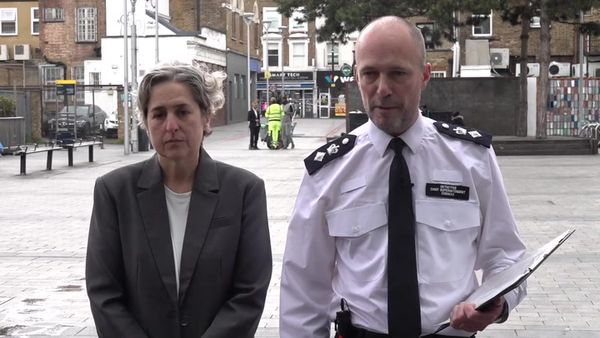
Photograph: Stefan Rousseau/PA
Keir Starmer will resist pressure from his MPs to back a ceasefire in Gaza on Wednesday in a move that could trigger one of the most significant rebellions of his leadership.
The Labour leader is backing an amendment to the king’s speech that will criticise how Israel has conducted its military campaign. But it will fall short of calling for the ceasefire that nearly a quarter of his parliamentary party wants.
Labour officials have told the party’s MPs to vote for their motion but to abstain on one from the Scottish National party calling for an outright ceasefire, making clear that they will sack any frontbencher who rebels by voting for the SNP amendment.
Sources say Starmer is braced for at least three and as many as 15 frontbenchers to resign over the issue, in what would be the biggest challenge to his internal authority since the early days of his leadership.
A party spokesperson said: “Labour’s amendment reaffirms the position set out in Keir Starmer’s Chatham House speech and reflects our concerns about what we’ve seen on the ground in the last fortnight, which includes the lack of hostage release, the insufficient amount of aid and utilities getting in and being distributed, the scale of civilian casualties in Gaza and the amount of violence on the West Bank.”
They added: “We’re not going to be engaging with the party political game-playing by the SNP in parliament.”
A Labour source said: “We’re expecting resignations. The best we can hope for is that the Labour amendment does enough to reduce the numbers.”
Starmer has been under fire over his response to the Middle East crisis since he gave an interview last month in which he appeared to say Israel was within its rights to withhold water and power from Gaza.
The Labour leader hoped he had restored party unity with his speech at the foreign policy thinktank Chatham House last month, in which he urged Israel to obey international law and made clear his support for a free Palestinian state.
He has refused to back a ceasefire, however, despite nearly 40 of his MPs signing a motion calling for one, including several frontbenchers. One, Imran Hussain, resigned, saying a ceasefire was “essential to ending the bloodshed”.
Since then, the death toll in Gaza has exceeded 10,000. The head of Gaza’s biggest hospital said on Tuesday that workers were digging mass graves to bury people who had died amid energy shortages and dwindling supplies.
MPs urged Starmer on Monday to change course and back a ceasefire during a highly charged meeting of the parliamentary party, which one Labour MP called a “bin fire”. Sources said the shadow foreign secretary, David Lammy, struggled to hold the party line in the face of sustained criticism from colleagues.
Meanwhile, Mish Rahman, a member of Labour’s national executive committee, is organising a grassroots campaign to put further pressure on the Labour leader.
Officials said on Tuesday that Starmer was refusing to budge on the ceasefire issue and would instead continue to back a “humanitarian pause” as supported by the US and the British government.
Labour officials spent Tuesday afternoon talking to potential rebels trying to incorporate their concerns into a new amendment without conceding on that central point. One Labour source said the discussions had been “very, very tense”.
One shadow junior minister who has not publicly called for a ceasefire but privately backs one said they did not believe the Labour motion went far enough. “A ceasefire is the only way,” the MP said. “The bloodshed is just too much.”
Those loyal to Starmer hope the party’s amendment, which will go further in criticising Israeli actions than his recent statements, will give MPs “something to unite around”. One of them, previously critical of the leadership’s handling and communication of its position, said the motion was “much better”.
“History is judging all of us, and it breaks my heart,” the MP said. “But if we lose unity over this matter and voters do ditch us, what happens to the party and the prospects of Labour MPs?”







